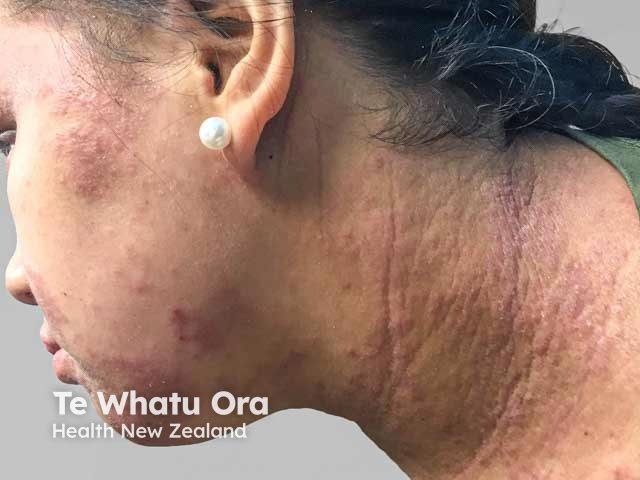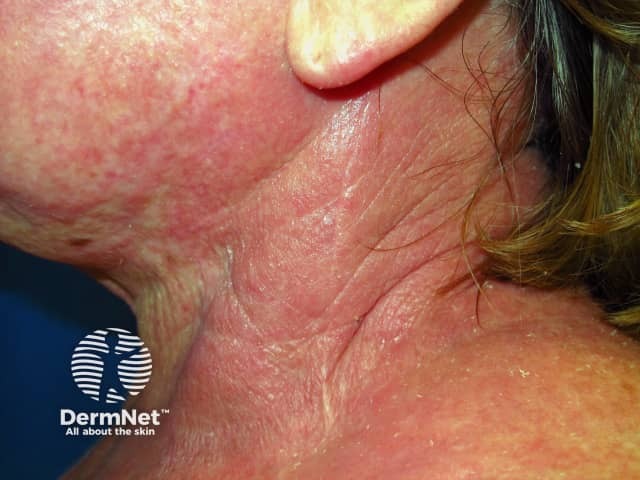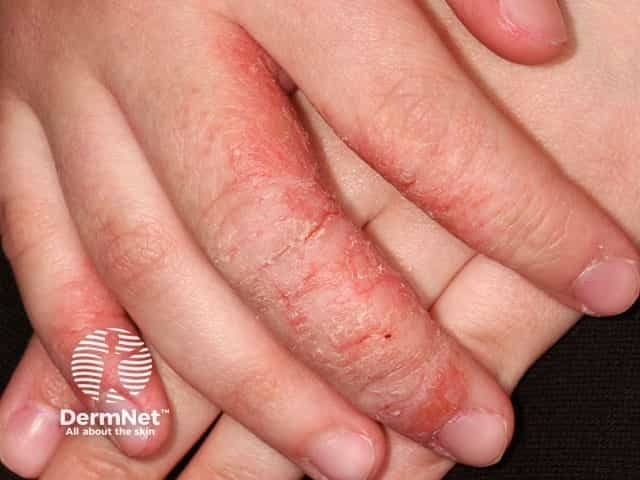Main menu
Common skin conditions

NEWS
Join DermNet PRO
Read more
Quick links
Authors: Brian Wu, MD candidate, Keck School of Medicine, Los Angeles, USA. DermNet New Zealand Editor in Chief: Hon A/Prof Amanda Oakley, Dermatologist, Hamilton, New Zealand. Copy editor: Maria McGivern. March 2017.
Introduction Psychological effects Impact assessment Atopic dermatitis and depression How to seek help
Atopic dermatitis, also known as atopic eczema, is a chronic or relapsing skin condition characterised by intense pruritus (itch) and disfiguring rashes. It is the most common skin disorder of childhood. Around 50% of people affected by atopic dermatitis during childhood continue to have it as adults.
Atopic dermatitis can lead to negative psychological effects such as social isolation and low self-esteem.


Atopic dermatitis affecting neck

The psychosocial effects of atopic dermatitis can be profound.
The Dermatitis Family Impact (DFI) questionnaire can be used to assess the impact of atopic dermatitis on the patient and their family. It evaluates:
At least one study has found that the impact of having children with dermatitis is similar to the family impact of having children with diabetes or asthma in regard to the cost of care, the changes that the family must make to cope with the disease, and the strain on family relationships.
Patients with severe atopic dermatitis have high levels of depression.
Treatment for atopic dermatitis may require collaboration between a dermatologist and a psychologist or psychiatrist to deal with both the physical and psychological effects of the disease.
Treatment for the psychological components of the disorder can include: